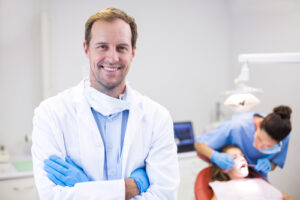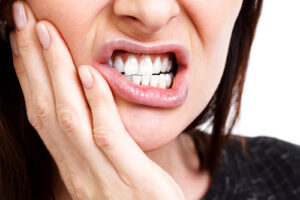When you find yourself in a very serious dental emergency that has been caused due to any injury, accident or any other health complication, you will need to consider opting for maxillofacial surgery. This is the best option for dealing with injuries, diseases, abnormalities as well as cancers of face, jaws and mouth. For this you will need to look for an experienced and skilled surgeon who will be able to correct the problems with the surgery.
Moreover, this surgery is important for rebuilding the foreheads, eye sockets, noses, cheeks and jaws that has been badly injured in an accident. Even if there are any tumors in your face or neck, the surgeon will perform a surgery for removing the tumors so that there are no risks to your life. When you are having any serious issues in your neck, face, jaw or mouth, you will need to visit a dentist in Midlothian who will help you to deal with the problem effectively.
Maxillofacial surgery is performed by surgeons who has been trained and qualified for treating the problems relating to the soft and hard tissues of the mouth, face and jaws. Moreover, they are fully qualified and competent enough for recognizing and treating a wide variety of injuries, diseases and defects in an efficient manner. Whether it is the surgery for treating misaligned jaw, wisdom teeth, cysts, tumors or any other issues with your mouth or jaw, you will need to opt for maxillofacial surgery for correct the problems quickly.
 There are many other issues that are treated through this surgery which includes impacted teeth, facial pain, facial disproportion, salivary gland diseases, cancers, and facial injuries. This is the most popular and effective oral surgery procedure that is used for treating many serious dental problems including treatment for tmj disorders, pro-prosthetic and bone surgery, sleep apnea treatments and acute treatment and emergency care for facial trauma.
There are many other issues that are treated through this surgery which includes impacted teeth, facial pain, facial disproportion, salivary gland diseases, cancers, and facial injuries. This is the most popular and effective oral surgery procedure that is used for treating many serious dental problems including treatment for tmj disorders, pro-prosthetic and bone surgery, sleep apnea treatments and acute treatment and emergency care for facial trauma.
The success of the surgery depends on the experience and qualification of the surgeon. He/she is a dental specialist possessing medical knowledge about the conditions that affects the teeth and jaws along with the soft tissues and bones of the face. Therefore, any issues affecting these areas of your face and neck will need to be corrected with this surgery so that you can get the best treatment for any of these dental problems.
Maxillofacial surgery is an advanced form of oral surgery that can help in correcting the problems of impacted wisdom teeth so that the tooth can be removed. This is especially important for alleviating the pain and reducing the risk for patients for developing potentially dangerous infection. All kind of facial injury or trauma will be corrected with this surgery including dislocated or fractured jaw. After the surgery, the surgeon will also offer high quality care and treatment for people suffering from oral and facial lacerations.
Moreover all the areas of your mouth and its connecting regions will be treated with this surgery so that any issues will be corrected at the earliest. This surgery is also very effective in replacing and fixing the impacted area that has been damaged due to an illness, injury or accident. Additionally, a cysts or tumor might be formed in your mouth or the surrounding areas which might eventually jeopardize your health.
There is a higher risk of the cancerous cells that is present in the infected area and hence it is important to go ahead with the surgery so that the party of your jaw is reconstructed or removed. This surgery also helps in repairing the congenital abnormalities or birth defects so that it will help people to lead a normal and healthy life. Skeletal problems, severe orthodontic conditions and other serious disorders will be corrected with the help of this surgery.
It helps in repositioning and reshaping of the jaws as well as realigning of the teeth so that all kinds of problems will be corrected with this surgery. Palate or cleft surgery is also included in this surgery where the changes in the facial structure are corrected with the help of this reconstructive surgery. But for a successful surgery, you will need to hire the best dental specialists who will carry on the surgery for offering the best outcome.
 There are several symptoms of gum disease, and a person can depict several common signs depending on the severity of the disease. One can have bad taste in their mouth with a constant mouth odor. Swollen gums tend to bleed during brushing or flossing. Plaques stuck on the gums and gums that seem to be moving away from the teeth. Pus can also be found between the teeth gums, changes in the teeth structure, and the dental formula, and lastly, loss of teeth.
There are several symptoms of gum disease, and a person can depict several common signs depending on the severity of the disease. One can have bad taste in their mouth with a constant mouth odor. Swollen gums tend to bleed during brushing or flossing. Plaques stuck on the gums and gums that seem to be moving away from the teeth. Pus can also be found between the teeth gums, changes in the teeth structure, and the dental formula, and lastly, loss of teeth.